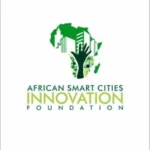Transforming Africa: How ASCIF is Leading the Smart City Revolution
The African Smart Cities Innovation Foundation (ASCIF) is a non-profit organization dedicated to advancing smart city initiatives across Africa. It uses technology to enhance urban living, focusing on sustainable and inclusive growth.

Mission and Vision
ASCIF’s mission is to drive socio-economic development through innovation, aiming to improve infrastructure and create employment. Its vision is a technology-driven continent prioritizing social inclusion and environmental sustainability, which is in line with the UN’s Sustainable Development Goals.
Achievements
Since 2017, ASCIF has completed over 10 projects, won global awards like the Intercontinental Smart Cities Award in 2021, and holds consultative status with the UN, indicating significant impact.
Comprehensive Analysis of ASCIF and Its Role in African Smart City Development
The African Smart Cities Innovation Foundation (ASCIF), accessible via its official website at www.ascif.org, is a non-governmental, not-for-profit, and non-partisan organization established in 2017. This organization is pivotal in addressing the rapid urbanization challenges faced by African cities, leveraging technology and innovation to foster sustainable urban development. Below, we delve into its mission, activities, achievements, leadership, funding, and more, providing a detailed examination for stakeholders, researchers, and urban planners interested in smart city initiatives in Africa.
Organizational Overview and Purpose
ASCIF’s primary objective is to transform existing urban areas, including slums, into well-planned cities and develop new urban spaces to accommodate Africa’s growing population. This focus is critical given the projection that more than half of Africa’s population will live in cities by 2030, presenting both opportunities and challenges such as inadequate infrastructure and unemployment. Smart cities, which utilize data and technology to enhance urban services, are seen as a solution to these issues, and ASCIF is at the forefront of implementing such solutions.
The organization’s work is rooted in the concept of smart cities, which involves using digital technologies to improve operational efficiency, promote economic growth, and enhance government services. In the African context, this is particularly relevant as urbanization progresses rapidly, and ASCIF’s efforts aim to make cities more efficient, sustainable, and livable.
Mission and Vision
ASCIF’s mission is to drive socio-economic development and empowerment in African cities through the integration of technology and innovation. It seeks to enhance infrastructure, create jobs, and increase incomes for urban residents, addressing key urban challenges. Its vision is a technology-driven African continent that prioritizes social inclusion, economic innovation, and environmental sustainability, aligning with the United Nations Sustainable Development Goals (SDGs). This alignment is evident in its focus areas, which include smart transport, climate resilience, and affordable housing, all critical for sustainable urban growth.
Key Activities and Operational Strategies
ASCIF engages in a range of activities to achieve its goals, demonstrating a comprehensive approach to smart city development:
- Capacity Building: ASCIF conducts training programs for local leaders, including governors, council members, and municipal staff, to build their skills in smart city planning and management. This ensures that urban governance is equipped to handle technological advancements.
- Technical Support: The organization offers expertise in development technology and information systems, enhancing urban governance and management through data-driven decision-making.
- Project Collaboration: ASCIF partners with public institutions, universities, NGOs, and international bodies like the African Union and United Nations to implement smart city initiatives. This collaborative approach ensures broad participation and impact.
- Project Evaluation: Monitoring and evaluating projects is a key activity, ensuring that initiatives meet their objectives and deliver value to communities.
- Community Involvement: ASCIF encourages participation from all segments of society, particularly women, youth, and children, to ensure inclusive urban development. This focus on inclusivity is crucial for addressing gender sensitivities and promoting equitable growth.
Specific focus areas include smart transport and logistics, which improve urban mobility; climate resilience, enhancing urban security and crisis management; and affordable housing, creating safe and inclusive communities. These activities are designed to address the multifaceted challenges of urbanization in Africa.
Achievements and Recognition
Since its founding in 2017, ASCIF has made significant strides, completing over 10 continental projects valued at more than $14,750 USD by early 2018. Its achievements include:
- Receiving the Smart Cities (Promising) Global Award, recognizing its innovative contributions to urban development.
- Winning the Intercontinental Smart Cities Award in 2021 at the International Smart Grids and Smart Cities Expo in Istanbul, highlighting its global impact.
- Participating in high-profile events like the AI Action Summit in Paris, showcasing its commitment to leveraging technology for urban development.
ASCIF’s international recognition is further evidenced by its consultative status with the United Nations Economic and Social Council (ECOSOC) and observer status with the United Nations Framework Convention on Climate Change (UNFCCC). These affiliations underscore its role in global sustainability and development efforts, positioning ASCIF as a leader in the smart city movement in Africa.
Leadership and Founding
The organization was founded by Mr. David Olatunji, a strategist with extensive experience in architectural and urban planning. Mr. Olatunji has directed numerous large-scale projects and fostered global partnerships, bringing a wealth of expertise to ASCIF. His leadership has been instrumental in establishing the organization as a key player in Africa’s smart city initiatives, driving its strategic direction and operational success.
Funding and Partnerships
ASCIF’s projects are funded through grants from international donors and government bodies, typically tied to specific initiatives. The organization has developed robust financial management systems to ensure these resources are used effectively, maintaining transparency and accountability. Partnerships are described as the “heart-line” of ASCIF’s operations, encompassing collaborations with local communities, academic institutions, and international organizations. These partnerships ensure that projects are inclusive, leveraging diverse expertise and resources to maximize impact. For instance, ASCIF’s involvement with networks like WeGO and its participation in programs like the Smart Cities Innovation Programme (SCIP) in Rwanda highlight its collaborative approach.
Contact Information and Engagement
For stakeholders interested in supporting or learning more about ASCIF’s work, the organization can be contacted at:
- Address: Plot 308, Ahmadu Bello Way, Opp. NAF Conference Centre, Jahi District, Abuja-Nigeria.
- Email: [email protected]
- Website: www.ascif.org
- Office Hours: 9:00 A.M. – 5:00 P.M.
ASCIF also maintains an active online presence, with over 1,400 followers on LinkedIn and a blog at www.ascif.blog, where it shares insights on smart city development and urban innovation. This digital engagement is crucial for disseminating information and fostering community involvement.
Additional Highlights
ASCIF organizes events like the African Smart Cities Congress, a platform for showcasing urban innovation and fostering collaboration among stakeholders. Its participation in global forums, such as the One Planet network and EU Agenda, further amplifies its reach and influence. The organization’s focus on promoting safe and smart infrastructures, such as housing and transportation, aligns with its broader goal of supporting government policies on sustainable development and net-zero emissions.
Conclusion and Future Outlook
The African Smart Cities Innovation Foundation (ASCIF) is a vital force in shaping Africa’s urban future. By harnessing technology and fostering innovation, ASCIF is creating smarter, more sustainable cities that can meet the needs of Africa’s growing population. As urbanization continues to accelerate, ASCIF’s role in ensuring that Africa’s cities are engines of economic growth and social progress will be increasingly critical. Stakeholders are encouraged to visit www.ascif.org to learn more about its projects and explore opportunities for involvement.







